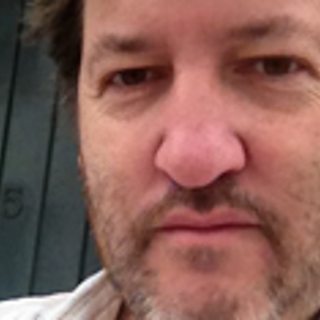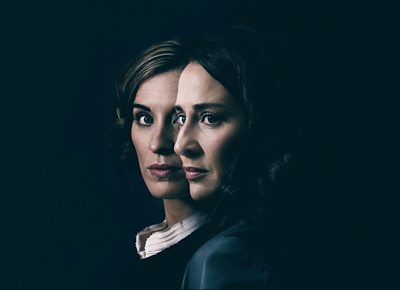
Have you always worked as both a writer and a director?
I mostly do both now but sometimes I directed what I didn't write (like ) but I rarely nowadays write something I don’t go on to direct. I write so I can direct.
How did you get started and get your first commissions?
I started off as an editor on documentaries and shorts (still love to do a bit of editing when I can) and wrote scripts in my spare time. One script (coincidentally about a pregnancy which goes wrong, shades of ) was runner-up in a competition and got me sent on a couple of short courses where film and TV people tutored. My first commission was for a TV movie thriller which never got made. It was a short film I directed written by (who I met on one of those courses) which brought me to the attention of who employed me as a writer and director on , and . The then head of drama there is basically responsible for me having a career.
Do you have any preference for writing over directing or vice versa?
My stock answer which I will also wheel out here is that when I’m writing I prefer directing and when I’m directing I prefer writing.
When I’m stuck in a room trying to work out what happens next I can stand it for about a year then I start to get twitchy. When I’ve been on a set for two months or had to get up at 6am to go to set I can’t wait to be in a locked room by myself. I think I will have to give directing the slight edge in satisfaction rating overall because that’s why I started writing and it’s harder to get a shot at. I love the process of putting bits of film together. But there is also a great buzz when you get to the last page of a script - before the notes roll in!
When you’re writing the script for a drama like The Replacement are you already thinking about it in terms of the visuals and how you’ll tell the story on screen?
Yes and no. You go in and out of it. Sometimes a character or a dialogue exchange takes over and you work out later how to make it distinctive visually. It can be hard. You want never to fall into the trap of writing too many scenes which are then rendered by bog-standard two shots and close-ups. But you also don’t want to impose some attention-seeking visual solution on a simple exchange which doesn’t warrant it. You want to keep the eye refreshed which means mixing up the conventional with the unconventional, contrasting cutty scenes with long takes, holding wide shots, not always cutting to the person talking, mixing static and tracking shots.
In I experimented a lot with split screen which makes your eye work harder. When I’m writing I try not to fall into scenes where it can become just photographs of people talking. It’s a particular trap of TV though films sometimes do it too. I try to make sure in as many scenes as possible the main character is seeing things and putting things together in their head not just talking about it. This is different from subtext which is about not having characters say what they mean, it’s about doing some storytelling with the camera.
A lot of The Replacement is set in a glass office where the main character (played by ) can see what’s going on outside but not hear. I love it when you see people speaking but aren’t told what they’re saying. And of course there’s also the non-verbal set pieces which are conceived visually and you’ve got a good idea as you write them how you want them to go. For the stuff I do which is mostly thriller-based, the visual language is based around the identification figure and the POV (point of view) shot so you’re shooting exactly what the protagonist sees. It can be very emotionally affecting and I don’t think people do it enough. It does take a bit longer. A lot of what you shoot will be people having conversations which aren’t always going to be visually extraordinary. And you ideally never want the actors to feel you’re letting the photography get in the way of what they’re doing, which is trying to be truthful. There’s give and take where you try to let them run with it if it’s a big emotional scene and they’ll let you have your fun on a bit of silly business like a 360 degree pan which required to do some bizarre things.
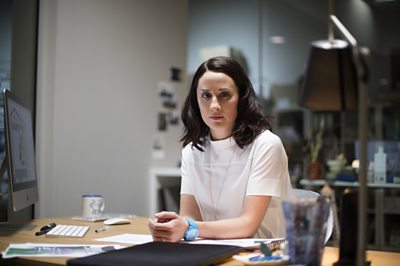
What are the advantages and disadvantages of directing your own writing?
No disadvantages! It makes it run more smoothly because actors and execs have a direct line to the writer when something’s not working in rehearsal or on set or in pre-production when you can’t find a location described in the script or in post when there are lines and scenes that turn out to be unnecessary or in the wrong place - or not there!
I’ve been in situations as a director where it’s difficult to change things because the writer isn’t available or doesn’t understand (or want to understand!) a technical problem or emotional problem. Having said that there’s not much you need to do with a script except shoot it. Another selfish advantage is you never have to watch a scene you’ve written where the director has missed the point. An alleged disadvantage is that a writer/director might not properly challenge the flaws in the script and be too protective. But I’m not a writer who wants to direct to protect his words, I’m a director who’s written something to direct - the script is a means to an end.
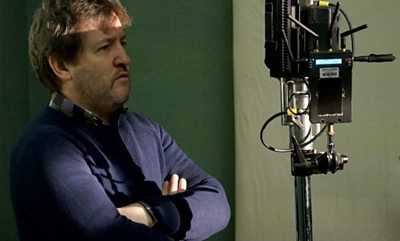
Are there common mistakes that writers make who don’t understand what a director needs to tell the story?
I think it’s more that some writers do too much and don’t trust the actors and everyone else to bring their bit. Sometimes there’s pressure to answer every possible unanswered question in the script and scenes are overworked. I’ve heard lots of stories from actors who’ve signed on to do a script and then it’s been ruined by the time they get to shoot it with overclarifications. Actors and directors need to discover things in the script and not have everything nailed down. It’s a process and a script is more than a suggestion but not quite a blueprint. Or sometimes writers put in stage directions that are unfilmable which may delight a certain kind of reader but will never communicate to any other audience.
Do you think that all writers should have a go at directing their own work?
I don’t think so. I mean some people say that directors should do some acting classes to understand what they put actors through. No thanks! I did that on my first film course and I hated it with a passion. Acting’s not for everyone and neither is directing. Some people find it the most boring thing in the world!
Do you dislike it when writers put in lots of stage directions?
Yes! Hate it! I sometimes get stick for doing the opposite. My scripts are very sparse. Actors I think don’t like too much spelt out for them. It should be in the dialogue and what they actually do. Some writers are great at it. I remember reading an script for one of the Jane Austens where he describes a kid eating the eighteenth century equivalent of a cheesy wotsit. If I could write stage directions like that I’d put them in. Stage directions should be to the point and if there is detail, not too much and not all the time. has an early stage direction where we’re seeing a montage of the main character doing his janitor tasks - “he vacuums the hall with an industrial vacuum cleaner on a fifty foot yellow extension cord”. That fifty foot reference is terrific. If I’d written that I would have lazily just written “he vacuums the hall”.
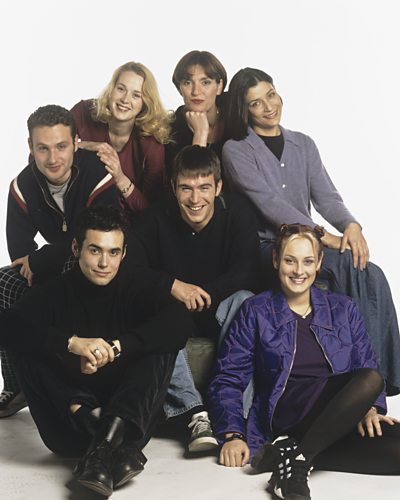
What attracted you to the story of The Replacement?
Any writer will recognise a great story when it falls into their lap. I was listening to my producer and friend talk about a job she was about to do which was providing maternity cover and we both soon realized it was a drama. It was one of those ideas where you kind of recognised it and thought - surely this has been done? But it hasn’t to my knowledge. We decided the POV would be more fun from the woman who’s being replaced than the one doing the replacing. I like Hitchcock and stories of paranoia so someone having to leave work for a time and see someone take over who may be better than she is was a great place to start.
Have you had any similar personal experiences or was it based on the experience of anyone you know?
The fact the specifics of the situation were far outside my experience is probably one of the reasons it grabbed me. But although I have no personal experience of pregnancy I have bags of paranoia about my position in the world.

How would you answer someone that said that this is a story that should be written by a woman?
I got here first! Honestly I’m amazed no-one’s done it before but that’s not my fault. I’m not a believer in the truism that you should write what you know. I can’t think of anything more boring. I write to get out of myself. I want to write what I don’t know. You’ll hear the same from actors - they get tired of playing versions of themselves, they want to transform and be someone else. When you’re writing the story you’re inhabiting all the characters at the same time, male and female, young and old. Writing for me is an act of imagination not autobiography.
What advice did you get to ensure accuracy?
I work closely with my producer and long time creative partner Nicole Cauverien who’s been on both sides of the drama - going on maternity leave herself and covering for those who have. We worked out a detailed outline before approaching the production company then we had lots of input from people there, including working mothers and also from people at the ����ý. Then Nicole pushes me hard on the script when there are inauthenticities or laziness or I’m getting too fond of entertaining myself. She also has a great story mind and can pitch possible solutions for places where things aren’t working. The final script gets fact-checked by psychologists, police, social workers and architects - our main character’s job.
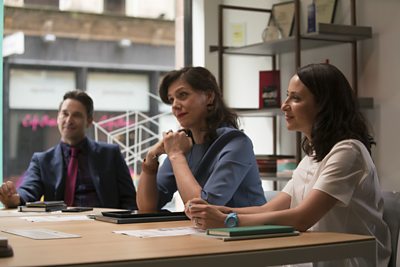
What’s the best piece of career advice you’ve been given?
Early in my career when I was about to start directing a 6 part series I’d written and was clearly looking like a rabbit in headlights, said: “You wanted to do this so you’d better enjoy it”. It’s advice that’s held me in good stead. Writing and/or directing can be stressful and very annoying at times but no-one’s making us do it! Commit to enjoy what you’ve decided to do.
Who would you describe as your writing or directing idols?
Directing it’s and . Writing it’s - I would advise any writer to dig out his memo to writers for his TV show that’s been circulating a few years now. His rules of drama are hard to stick to without cheating. Or - I was at a lecture he gave where he wrote one word on the board: WANT. Write what you want (he got a lot of what he wanted to say in despite the format) and write what your characters want. The fun of course is when you (the plot) want something and your character doesn’t agree…
What would be your 3 Desert Island DVDs or Box sets?
, and
What’s up next?
There’s a film I wrote and directed coming out later this year which is in some ways the opposite of which was all about the women. B&B is about a couple of guys who go to stay at a remote Christian guest house to bait the owner they sued for refusing them a double bed. They’re planning a weekend of mischief but get more than they bargained for when a Russian neo-Nazi checks in. It’s meets .
